Seminole Tribe’s gambling compact with Florida approved by U.S. regulators

TALLAHASSEE — Federal regulators on Friday quietly and passively allowed the gambling agreement between the state of Florida and the Seminole Tribe to take effect, opening the door for sports betting to begin on Oct. 15, and setting off potential battles in court and on the ballot over what direction sports betting will take in Florida.
In a 12-page letter to the Seminole Tribe and the state, the Department of Interior ruled that it will neither approve nor deny the compact and, “as a result, the Compact is considered to have been approved by operation of law to the extent that it complies with IGRA (Indian Gaming Regulatory Act) and existing Federal law.”
The compact will become effective upon the publication of the letter in the Federal Register, which is expected sometime next week.
Unless a court blocks the agreement, beginning in October the tribe will be allowed to take sports bets at six of its casinos. Florida’s existing racetracks and jai-alai frontons will be allowed to develop their own mobile apps and conduct off-reservation sports betting using the Tribe’s server.
But while the Department of Interior’sapproval was the first step, hurdles remain. A lawsuit is pending in federal court, and at least two ballot initiatives have been launched that attempt to undermine the Seminole Tribe’s monopoly on sports betting and its expansion of casino games.
Florida legislators ratified the compact signed by Gov. Ron DeSantis and Seminole Tribe Chairman Marcellus Osceola Jr. during a three-day special session in May, allowing Florida to join dozens of others states in offering sports betting and opening the door to the broadest expansion of gambling in Florida in a decade.
In exchange, the tribe has guaranteed at least $500 million in annual revenue payments to the state for the next 30 years.
The Department of Interior suggested, for example, that “the Department has concerns regarding the inclusion of provisions relating to jurisdiction over tort claims and mandatory vendor contracts. We also believe it is important that the Department address the provisions relating to internet gaming activities and revenue sharing.”
In its 12-page letter, the Department of Interior concluded that “evolving technology should not be an impediment to tribes participating in the gaming industry” and the goals of IGRA “would be served through the improvement of tribal-state cooperation in the regulation of mobile wagering.”
The letter also notes that the Seminole Tribe’s gaming empire, which includes the Hard Rock Casinos, “have resulted in an incredible success story.”
“Through a mix of business savvy and shrewdness, the Tribe has grown its gaming operations from limited class II facilities to globally-recognized class III gaming operations — and has been able to successfully negotiate class III gaming compacts with the State to facilitate that expansion,’’ it said. “We considered these circumstances when conducting our review, and it informed our assessment of whether certain Compact provisions were the outcome of bilateral good-faith negotiations.”
Under the agreement now, anyonein Florida over age 21 can start placing and collecting online wagers on sporting events “via the internet (or) web application” from anywhere in Florida beginning on Oct. 15. All transactions would go through servers located on tribal land in a “hub and spoke” model intended to bypass both federal and state law, which both deem sports betting in Florida illegal.
Several companies are hoping to persuade Floridians to end the tribal monopoly on sports betting.
Three out-of-state gaming giants — Las Vegas Sands, FanDuel and DraftKings — have put $37 million into multiple ballot efforts to influence the future of sports betting and casino gambling in Florida.
Las Vegas Sands Corporation, controlled by Miriam Adelson, the wife of the company’s late CEO, Sheldon Adelson, is pushing two new ballot initiatives that ask voters to approve as many as three new casinos in Florida and allow existing North Florida card rooms to offer casino games.
Adelson is reportedly interested in building a new casino near Jacksonville and is considering buying an existing gambling license from a parimutuel to allow it to get into the sports betting operation.
A fourth company, the owner of Florida-based Magic City Casino, has created a political committee called People Against Regulatory Legislation Addressing You (PARLAY) in June and gave it $15 million for purposes yet to be determined.
Magic City’s affiliates West Flagler Associates and Bonita-Fort Myers Corporation have also filed a lawsuit in U.S. District Court for the Northern District of Florida challenging the legality of the compact. It alleges that the agreement authorizing sports betting outside of tribal lands in Florida is in violation of the Indian Gaming Regulatory Act and asks the court to enjoin implementation of sports betting.
In addition to violating IGRA, the lawsuit argues, the deal violates the federal Wire Act of 1961, which prohibits the use of interstate commerce for illegal transactions, and violates the Unlawful Internet Gaming Enforcement Act by allowing bets to be placed outside of tribal lands.
John Sowinski, director of No Casinos, the organization that backed the constitutional amendment requiring voter approval of gambling expansion, said it was “deeply disappointed that the Department of Interior took no action on the compact.”
“While this inaction means that it is deemed approved by the Department of Interior, it does not change the fact that this compact violates multiple Federal laws as well as the Florida Constitution,’’ he said. “The 2018 constitutional mandate of 72 percent of Florida voters could not be clearer. Only Florida voters, not politicians in Tallahassee or Washington, have the power to expand gambling in Florida. This issue will have its day in both State and Federal Courts, where we are confident that this compact will be overturned.”
In a letter to the Department of Interior in June, No Casinos urged the agency to reject the compact, arguing it violates IGRA and the state Constitution by authorizing games that have not been approved in a statewide vote. The irony is that the tribe became a substantial backer of No Casino’s effort to pass Amendment 3 in 2018, which required that any expansion of gambling be brought before voters in a statewide referendum.
In the letter, Sowinski warned that the compact will be used as a wedge to allow for the expanded gambling by billionaires eager to bring casinos to Miami and other parts of the state, a reference to rumors that Donald Trump wants a casino at his resort in Doral and Jeff Soffer wants one at his Fontainebleau resort in Miami Beach. Both are communities whose local governments have passed ordinances that prohibit casinos.
“IGRA was not written to expand non-tribal gaming for the benefit of billionaires, and it is wrong to use the leverage of a tribal-state compact to advance controversial and legally dubious non-tribal gaming,’’ Sowinski wrote.








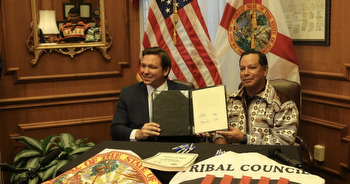

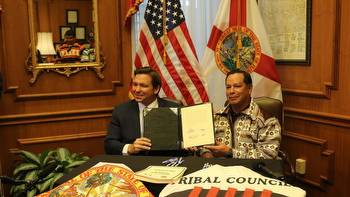
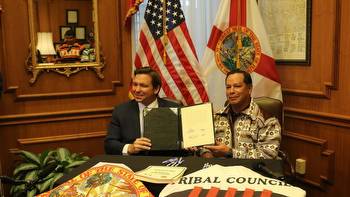



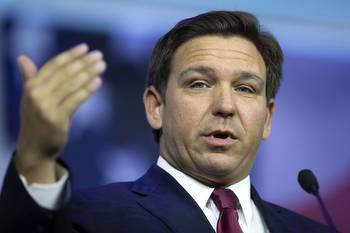
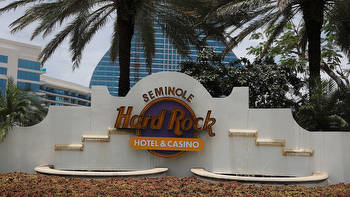



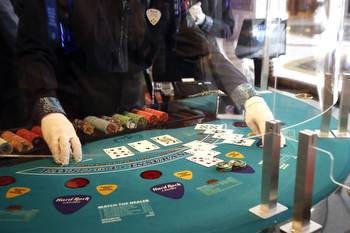


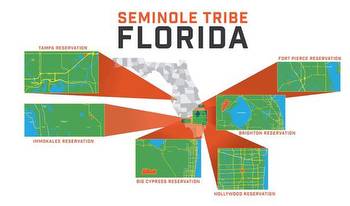
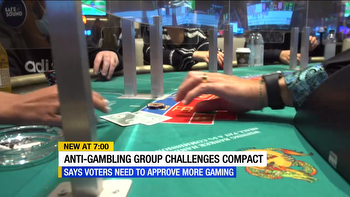
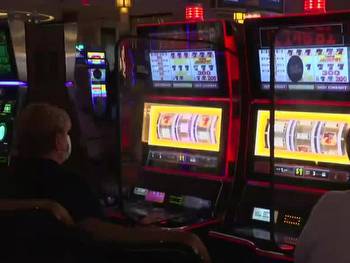





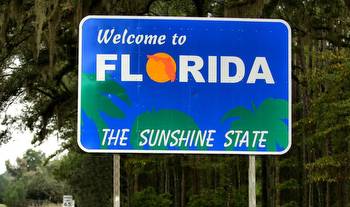
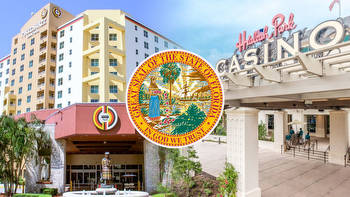

.jpg)



